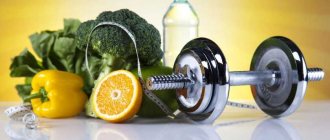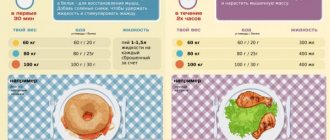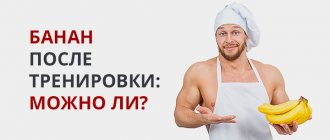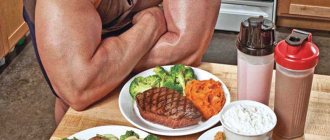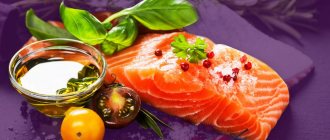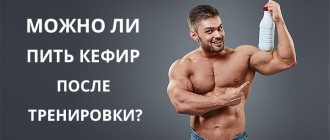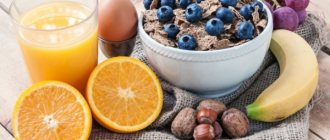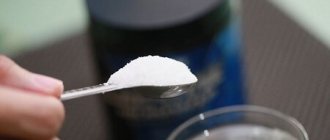Greetings, my dear girls and fitness girls!
This Friday we will see a continuation of the epic post: what to eat after training? We'll continue to answer the most pressing questions about post-workout snacks, look at staple foods, specific snacks you can grab right after exercise, and find out what the science tells us in this regard. Well, or as usual, let's delve into the theory and won't understand anything from it :).
So, please sit down, let's begin.
What happens to the body after training
Studies show that peak protein synthesis occurs within 1-2 hours after exercise. During this period of time, the body is most receptive to receiving the right nutritional components. Among those training in the gym, this phenomenon is called the anabolic window or the protein-carbohydrate window.
Anabolic window
This is a short period during which the body most urgently needs the supply of amino acids and carbohydrates. After training, all reserves are depleted, muscle fibers are damaged. The goal of post-workout nutrition is to provide damaged muscle fibers with nutrients in a timely manner and replenish glycogen reserves.
Protein-rich foods help create an anabolic effect and suppress catabolic processes (muscle breakdown). Together with carbohydrates, this intake increases insulin levels and prevents the destruction of muscle protein.
The anabolic window is the best period of time after training when the body is able to cope with carbohydrates, including simple ones.
How long does the anabolic window last?
At the moment there is no exact answer to this question. Some believe that the anabolic window is a period of time that lasts 1-2 hours. Others say that the window is open for no more than 30-45 minutes. Still others are sure that the window closes only after a day has passed. There is also an opinion that no window exists at all.
But there are studies that have revealed that between 15 and 45 minutes after completing a workout, glucose absorption and protein synthesis increase tenfold. And the total duration of the anabolic window is about 24 hours. And even on the second day, protein synthesis still remains elevated.
Conclusion. If you are gaining weight and every gram of muscle growth is important to you, then it is advisable that the right nutrients enter your body as quickly as possible. If you didn't drink a cocktail after training, then screw it :). The main thing is to eat a full meal in the next hour and a half and consume enough proteins, fats and carbohydrates throughout the day.
What proteins to eat after a workout
Not all proteins are suitable for post-workout nutrition. You can use them, but this is not the most optimal form. Cottage cheese, yogurt, casein protein - these proteins are slowly digested. After a workout, speed is important to us, so to quickly repair damaged fibers, we need to take easily digestible proteins.
The best sources are chicken or turkey fillet, veal, eggs, seafood and lean fish. Whey protein also has its place and is best taken within 15-30 minutes of your workout. And after 1.5 hours, have a full meal.
It is not recommended to consume fats after training
Fatty acids slow down digestion and interfere with the absorption of nutrients. Nuts, peanut butter, and cheese are not the best post-workout snacks. Move them to a later meal, but don't eat them late in the evening. Especially if your goal is to lose weight.
Carbohydrates can and should be eaten after training
The main nutrient for the brain is glucose. Glycogen, which keeps glucose levels in the body at optimal levels, decreases during exercise and is completely depleted within 90 minutes. Once glycogen is depleted, cortisol levels rise and catabolism begins to supply nutrients to the brain.
Eating carbohydrates post-workout helps restore glycogen stores and trigger a surge in insulin, which is involved in transporting nutrients and helping protein get to where it needs to go.
What are the rules of life?
Research is good, but there is also the practice of practicing athletes. It is more accurate, because from experience it is easier to calculate how much protein you should drink after training and during the day. Slightly larger portions are recommended here. In particular, the optimal dosage is considered to be 2.6-3.3 grams during “drying”, when the task is to achieve ideal relief, and 2.2 grams in normal mode. By the way, almost the same data were obtained as a result of another study from the University of Auckland. Here, scientists have identified the optimal dosage - 2.3 - 3.1 grams per kilogram of mass.
Benefits of post-workout nutrition
It is important to eat in the first hour and a half after strength training. The benefits of eating outweigh any benefits from burning extra calories if you decide to fast for a couple of hours.
1. Prevent muscle breakdown.
When performing strength exercises, micro-tears appear in muscle fibers. If the body does not receive the required amount of nutrients (both before and after exercise), this can lead to catabolism (muscle breakdown). The body will literally eat your muscles, using muscle protein for recovery.
2. Increased protein synthesis.
After a hard workout, the body is able to absorb nutrients in an increased volume. Muscles become sensitive to insulin. And we know insulin as a hormone with a bad reputation, since it is involved in the accumulation of subcutaneous fat. But after strength training, insulin and proper food intake, on the contrary, promote anabolism (muscle growth) and at the same time fat loss.
3. Replenish glycogen stores.
Eating carbohydrates immediately after exercise not only helps replenish glycogen stores, but also increases protein synthesis. This is the only time when you can eat something sweet and unhealthy.
